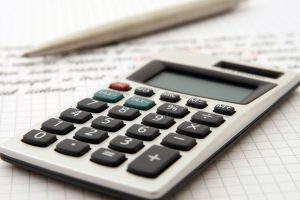Taxes are technically due in four quarterly installments throughout the year (not one lump sum on April 15th). Most people don’t even think about estimated payments because if you’re an employee, your employer does this for you. Your employer (as required by law) withholds money from your paycheck and submits it to the government. (Remember the rude awakening you had when you got your first paycheck and wondered where half your paycheck went?). But in some situations, (e.g. you’re self-employed, have income from other sources, or are a partner in a partnership), you may have to make these “estimated payments.” They’re estimated because you don’t actually know how much you owe yet. You won’t know until you file your tax return and come up with the final amount.


How much do I need to pay?
For federal taxes, there is a “safe harbor” rule to help you with the uncertainty.
What is the “safe harbor” rule?
The total of your quarterly estimated payments (plus any withholding you have from other sources) must be at least the smaller of:
(a) 90% of the tax that you owe for the current year (which, again, is the number you’re unsure of), or
(b) 100% of the tax shown on your prior year tax return (110% if you’re considered “high income.” When I checked in 2019, you’re considered “high income” if your adjusted gross income was more than $150,000.)
State Payments
Don’t forget, if you owe estimated payments for Federal, you may owe quarterly payments to your state as well. I know, I know. Does the tax fun ever end?
Worksheet to Calculate your Estimated Tax Amount
This document includes a worksheet to help you calculate your estimated tax amount.
Need more information?
If you fall into that group of people that is required to file estimated payments and still have questions, check out the IRS website here. They actually have a respectable Q&A page that should answer all your questions about estimated payments. It includes a link to the actual vouchers (1040-ES) you’d send in with your payments.
Consider Hiring a Professional
Personally, I’m not a proponent of DIY-taxes. I’d recommend hiring a qualified tax professional. This is coming from someone with a masters in taxation. Unless you’re an active tax professional, it’s hard to stay on top of a topic that changes every year with new tax laws. In an effort to save a few hundred dollars, people sometimes end up costing themselves thousands. Be smart enough to know when you’re in over your head.
